Introduction
At the concluding session of Topic Study Group 61 (TSG 61) at the 14th International Congress on Mathematical Education (ICME 14), there were several requests to expand and extend the work of TSG 61. These requests have led to the interim formation of the International Cooperation Development in Mathematics Education Discussion Group (ICDME).
This conference forms part of ICDME’s plans to initiate a community in international cooperation development whose interest is in the realization of quality mathematics education as a public good for society.
Purpose of the Conference
- To serve as a platform for policy-makers, scholars and practitioners to discuss issues, challenges, strategies and solutions in international cooperation in mathematics education.
- To create a community of policy-makers, scholars and practitioners to regularly meet to discuss matters related to international cooperation development in mathematics education.
- To work towards the publication of an edited book on international cooperation.
CRICED, University of Tsukuba
The Center for International Cooperation in Educational Development (CRICED) was established on April 1, 2002, in the University of Tsukuba at Tsukuba, Tokyo Campus. Since 2015, it has Khon Kaen Office in the Institute of Research and Development for Teaching Profession (IRDTP) for ASEAN, Khon Kaen University, Thailand. Current Center Director is Masami Isoda, Prof/PhD, Faculty of Human Sciences, University of Tsukuba.
CRICED has established its role as an international core center for leading educational reform in the University of Tsukuba under the Ministry of Education, Culture, Sports, Science and Technology (MEXT) of Japan. It has been engaging in International Project from Asian Pacific region to Africa under the support of MEXT and Japan International Cooperation Agency (JICA). It has been leading Asian Pacific Economic Cooperation (APEC) project in mathematics and informatic education since 2006 and established APEC Lesson Study Network, since 2006 with collaboration of leading reserchers and institutions. CRICED has been working a corresponding center under the University of Tsukuba as for an affiliate member of the Southeast Asian Ministers of Education Organization (SEAMEO). Since 2016, it has been collaborating with UNESCO-MGEIP.
- CRICED website in English: https://www.criced.tsukuba.ac.jp/en/index.html
- CRICED website in Japanese: https://www.criced.tsukuba.ac.jp/
- On Mathematics Education: https://math-info.criced.tsukuba.ac.jp/
- On History of Mathematics http://math-info.criced.tsukuba.ac.jp/museum/
Organizing Committee
-
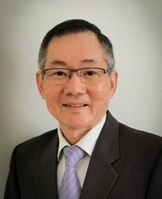
Ui Hock Cheah
Advisor/Consultant at Penang Maths Platform; Former Deputy Director, SEAMEO RECSAM
-
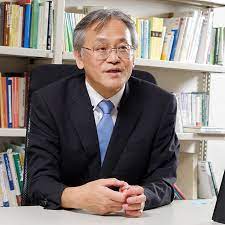
Isoda, Masami.
Prof/PhD, Faculty of Human Sciences, Director of CRICED, University of Tsukuba, Japan (Host)
-
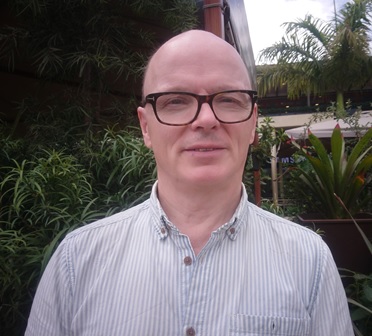
Arne Jakobsen
Professor (Dr.ing.), Faculty of Arts and Education, University of Stavanger, Norway.
-
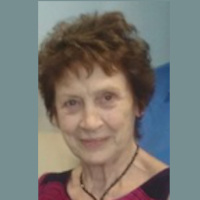
Bernadette Denys
University of Paris (Diderot), France
-

Isoda, Masami.
Prof/PhD, Faculty of Human Sciences, Director of CRICED, University of Tsukuba, Japan (Host)
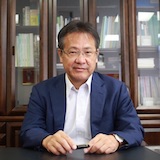
Baba, Takuya
Prof/PhD, Vice-Dean of Graduate School of Humanites and Social Studies, Hiroshima University, Japan
Staff:
-
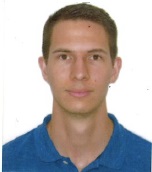
Diego Solis
Master Program in Education, University of Tsukuba, Former lecturer of the University of Costa Rica.
Suporting Organization:
Japan Society of Mathematical Education
Conference Theme
Issues, challenges, strategies and solutions in international cooperation development in mathematics education.
Key Focal Questions for Contributors
- What were the issues and challenges in the project?
- How did the partners in the collaboration arrive at strategies to solve the issues and challenges?
- What were the roles and narratives of the agents and how did they influence the planning and implementation of the project?
- What were the lessons learnt from the project?
Tentative Programme
Announcements
ICDME Tsukuba Conference 1st announcement revised is kept and add:
TSG_61_Summary_17Jul2021.pdf
ICDMED_Pa_Cheah_Isoda_15pg_template.pdf
Layout is like the following:
https://www.criced.tsukuba.ac.jp/icdme.htmlConference Dates
11-12 February 2022
(Due to the implications of COVID19 on travel, the actual dates and duration of the Conference will be announced later.)
Venue
Registration
Please fill out the Registration Form on or before February 4th, 2022. Access the form by clicking on the following link.
https://forms.gle/2iqyw2CnY53tdhAX7
Submission of Papers
Policy-makers, scholars and practitioners are cordially invited to submit papers based on the theme of the conference.
- There will be two categories of contributors:
- Contributors who had presented their papers in TSG 61 in ICME-14
- New contributors
- Contributions for the Conference will be categorized as
- Long papers (which will include the common elements found in scientific papers i.e., related literature, educational theories and references. Expected length of paper: 12-15 pages).
Please name your file as ICDME_Pa_"Your name" - Short papers (Project reports. Expected length of papers about 8-10 pages).
Please name your file as ICDME_Ps_"Your name" - Oral presentation. Presenters are required to submit a 2-page summary of the presentation.
Please name your file as ICDME_Po_"Your name".
Note: Oral presentations will not be selected as papers for publication. However, all presentation slides will be uploaded to the website for the Conference.
Please submit your papers to: ICDME2022@gmail.com
Paper Format
The APA format (7th edition) will be used as the paper format for this conference. Please download the ICDME paper template and use it to submit your paper.
Please click to download the paper template.
Important Dates
- Submission of papers deadline
- For TSG61 extended papers: 1 November 2021
- For new contributors: 1 December 2021
- For oral presentations: 1 December 2021
- Review of papers: 1 November - 15 December 2021
- Communication of review results to authors by: 31 December 2021
- Revision of papers: 1 January - 10 February 2022
- Conference dates: 11 - 12 February 2022
Online contents
Conference online
Day 1

Day 1
(Fri 11 Feb 19:30 GMT+9 )
https://youtu.be/jn4gVv1yyVs
Day 2

Day 2
(Sat 12 Feb 19:30 GMT+9)
https://youtu.be/L8af2ELwUxQ
-
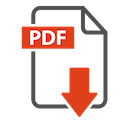 ICDME Tsukuba Conference Final Program
ICDME Tsukuba Conference Final Program

